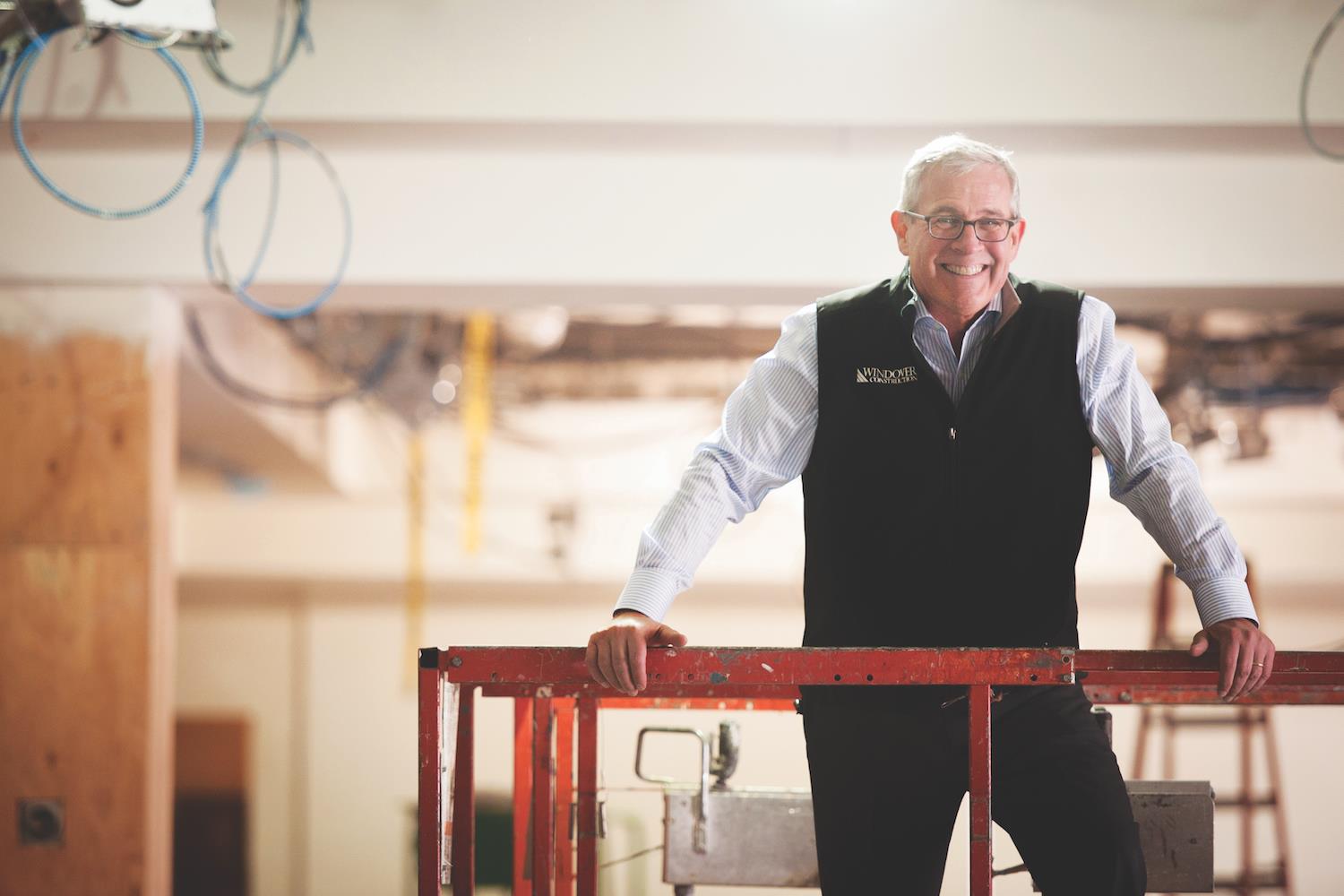
Community Building
Lee Dellicker, CEO of Windover Construction, Inc., has made a career of constructing beautiful buildings and fostering goodwill on the North Shore.
Be Calvin Hennick
For years, Lee Dellicker commuted from his home in Manchester-by-the-Sea to his job as a vice president for Shawmut Design and Construction in Boston, spending up to three hours a day behind the steering wheel on his way to and from the office. When he left in 2004 to co-found Windover Construction, Inc., he imagined that he would have more free time.
It hasn’t worked out that way. “I remember telling my wife, ‘I’ll be able to spend more time at home, now that I’m not spending three hours a day in the car,’” Dellicker recalls. “But the fact that I’m only a few minutes from my house means I’m just able to work harder.”
That hard work has paid off. In the 14 years since Dellicker helped start Windover, the company has gone from doing “a few houses here and there,” as he describes it, to generating between $115 million and $130 million a year in revenue, with nearly 100 employees. The Beverly-based company has managed the construction of residential, commercial, and academic buildings all over the North Shore and beyond, with projects ranging from a health and wellness center at Phillips Exeter Academy to the Elm Street Village luxury townhouse complex in Beverly Crossing to the headquarters of BankGloucester.
Dellicker is particularly proud of Windover’s work on Beauport Hotel in Gloucester, where the company managed virtually every step of the property’s development.
Dellicker’s business networking has a way of turning into volunteer work. Years ago, Beverly’s then-mayor suggested that Dellicker meet with the president of Montserrat College of Art to provide the administrator with some advice. Dellicker took the meeting, thinking that the connection might pay off for Windover. Indeed, the company would go on to manage construction of a residence hall at the school, although much more of Dellicker’s time has gone into serving on various Montserrat boards and committees. He ended up becoming chairman of the Board of Trustees, and also served on the finance committee and headed up the search committee that resulted in the hire of the Stephen Immerman, who retired as president of the school last spring.
“Montserrat is the kind of place that sucks you in,” Dellicker says. “It ended up being more of a labor of love.”
Dellicker has also served as a board member for the North Shore Chamber of Commerce, a corporator for Beverly Bank, a board member for the Salem State University Assistance Corporation, and a member of the Manchester Essex Regional School Building Committee, among other volunteer positions. “I tend to dive into communities that I’m involved in,” he says. “From a work-and-life standpoint, some days the line is blurred.”
Windover makes between $100,000 and $200,000 in charitable contributions each year, Dellicker says. He previously directed the firm’s giving himself, but in recent years, employees have decided where to donate, choosing organizations that work on behalf of veterans and children. It’s one of a number of steps Dellicker has taken to give his employees more control at Windover—the most dramatic of which came late last year when he moved to make them the literal owners of the company.
Dellicker had bought out his co-founder in 2015, and then, last December, he began transferring ownership of Windover to his workers through an employee stock ownership plan. Over the course of seven years, he says, workers will gradually buy him out of his ownership, using tax savings from the plan. Dellicker says he likely could have made more money by selling the firm to a larger company, but the employee ownership move allows him to preserve the company culture, retain and reward valued employees, and retire on his own terms.
“I’m not planning on retiring anytime soon,” says Dellicker, who turns 62 in November. “However, I have learned from many of my mentors that you need to be thinking about succession planning many years before you plan to transition. I thought, what would be the next step? I could sell to a bigger company, or take the company public. Every one of those options meant that the culture would change.”
“It wasn’t about making money,” Dellicker adds. “It was about keeping this culture. I didn’t build this myself. We all built it.”
